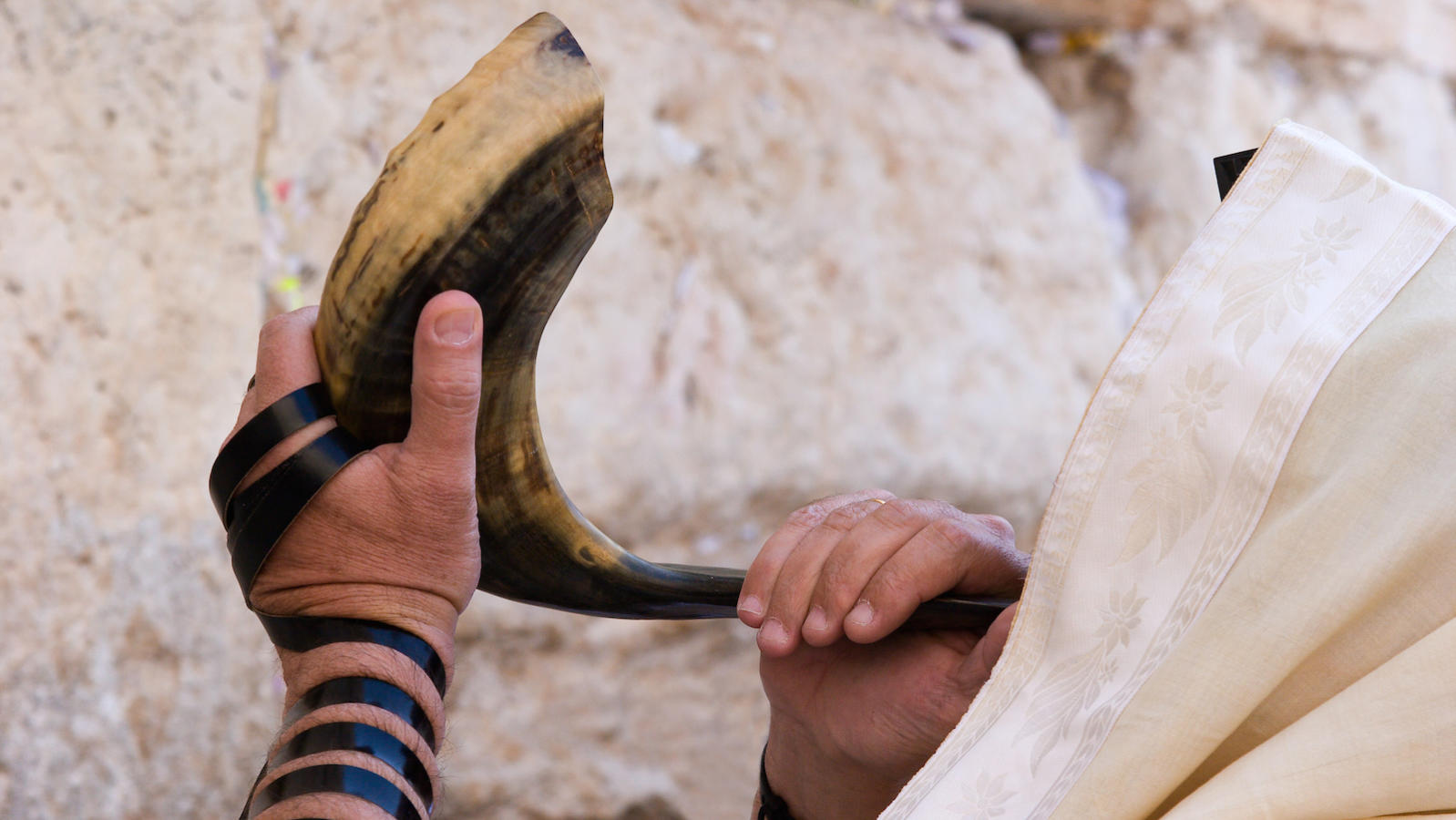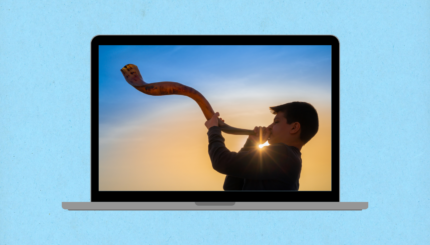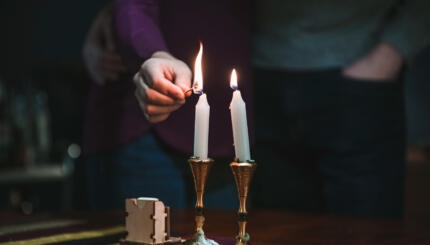The Torah prescribes the sounding of the shofar but does not say when or how this ritual is to be performed. It is rabbinic Judaism that supplies these details as outlined in the Mishnah:
The following is the order of the blessings: One recites the Patriarchs, the Might of God, the Sanctity of the Name, including Kingship verses in it, and does not sound the ; the Sanctity of the Day and sounds the shofar, remembrance and sounds the shofar, shofarot and sounds the shofar… so taught Rabbi Yochanan ben Nuri. Rabbi Akiva said: If he does not sound the shofar with the saying of the kingship verses, why say them? Rather … he includes the kingship verses with the sanctification of the day and sounds the shofar, remembrance and sounds the shofar, shofarot and sounds the shofar. (Talmud, Tractate 4:5).
The reference here is to the main service of Rosh Hashanah, which was, in the rabbinic period, the morning (Shaharit) service. At some later time, this practice was changed, so that the sounding of the shofar and the reading of biblical verses connected with it were postponed until quite late in the day. The rabbis explained this postponement as follows:
It once happened that they sounded the shofar at the beginning [of the day]. The enemy [the Romans] assumed that this was the signal for an uprising against them so they attacked and killed them. (PT Rosh Hashanah 4:8 59c)
Although the historicity of this specific event is not verifiable, what is clear is that the shofar, like the trumpet of the Romans, was an instrument used in biblical times to signal battle, as exemplified in the story of Joshua and the walls of Jericho. Sounding it later, to avoid any misunderstanding, when it was obviously a part of the ritual of the day, was therefore plausible and indeed advisable.
Yet, moving the sounding of the shofar from Shachrit [the morning service] to Musaf [the additional service] was not completely appropriate. Indeed, the talmudic rabbis found it problematic that the main of the day was not performed until such a late time. An additional blowing of the shofar was therefore added at the conclusion of the service (without the biblical verses that once accompanied the act), and the sounding of the shofar was never returned to its original place. Interestingly enough, then, what has come to be seen today as the main shofar service was originally a secondary service.

Help us keep Jewish knowledge accessible to millions of people around the world.
Your donation to My Jewish Learning fuels endless journeys of Jewish discovery. With your help, My Jewish Learning can continue to provide nonstop opportunities for learning, connection and growth.
These two shofar services have specific names. The first is called “sitting” and the second (during the repetition of the Musaf Amidah) is called “standing.” The latter refers to the Amidah,which means “standing.” “Sitting” refers merely to a time other than the standing Amidah. Regardless of the name of the service, the custom is to stand whenever the shofar is sounded.
The shofar service conducted after the Torah reading begins with the chanting of Psalm 47, which could well have been read on Rosh Hashanah in the Temple. Its appropriateness to Rosh Hashanah is obvious: God ascends midst acclamation: the Lord to the blasts of the shofar (47:6). God reigns over the nations; God is seated on His holy throne (47:9).
In some congregations, this psalm is recited seven times. This repetition is another of the many Lurianic mystical practices that have become part of the Rosh Hashanah service.
The two blessings, “to hear the sound of the shofar” and Sheheheyanu (“who has kept us in life”), are recited by the person who sounds the shofar. While only one person blows the shofar, all the worshippers listen.
The Torah (Numbers 10:6‑8) mentions two different sounds, the teki’ah, one long blast, and the teru’ah, a shorter sound. Since the rabbis were not certain exactly what the teru’ah was, two possibilities emerged: the shevarim, broken sounds resembling a moan, and the teruah, an outcry of nine staccato notes. Both are used today.
The Shofar-Blowing Pattern
Thus the blowing of the shofar follows a prescribed pattern. It is composed of three sets of blasts, each consisting of three repetitions of three notes. Each set is different from the other. The various notes of the shofar that are blown are:
- teki’ah — one long blast,
- shevarim — three broken sounds, and
- teru’ah ‑ nine staccato notes.
The pattern of blasts is as follows:
- teki’ah‑shevarim teru’ah‑tekiah;
- teki’ah‑shevarim‑teki’ah;
- teki’ah‑teru’ah‑teki’ah.
The final tekiah is prolonged (it is called teki’ah gedotah, a “great blast”). This last blast recalls the verse from Isaiah, “And on that day a great ram’s horn shall be sounded” (27:13).
We conclude the service with a hopeful look toward the future, as the blowing of the shofar is followed by the reading of a verse from Psalm 89:
Happy is the people who know the teru’ah, O Lord, they walk in the light of Your presence (89:16).
Since the first word of this verse in Hebrew is ashrei, this verse leads perfectly into the recitation of the next prayer, Ashrei (Psalm 145), after which the Torah is returned to the ark, concluding the morning service.
This explanation for when the shofar is sounded holds true for all forms of Judaism other than Reform Judaism. Because Reform Judaism does not have a Musaf (additional) service, the shofar service is incorporated into Shachrit, the morning service.
Excerpted with permission from Entering the High Holy Days, published by the Jewish Publication Society.



